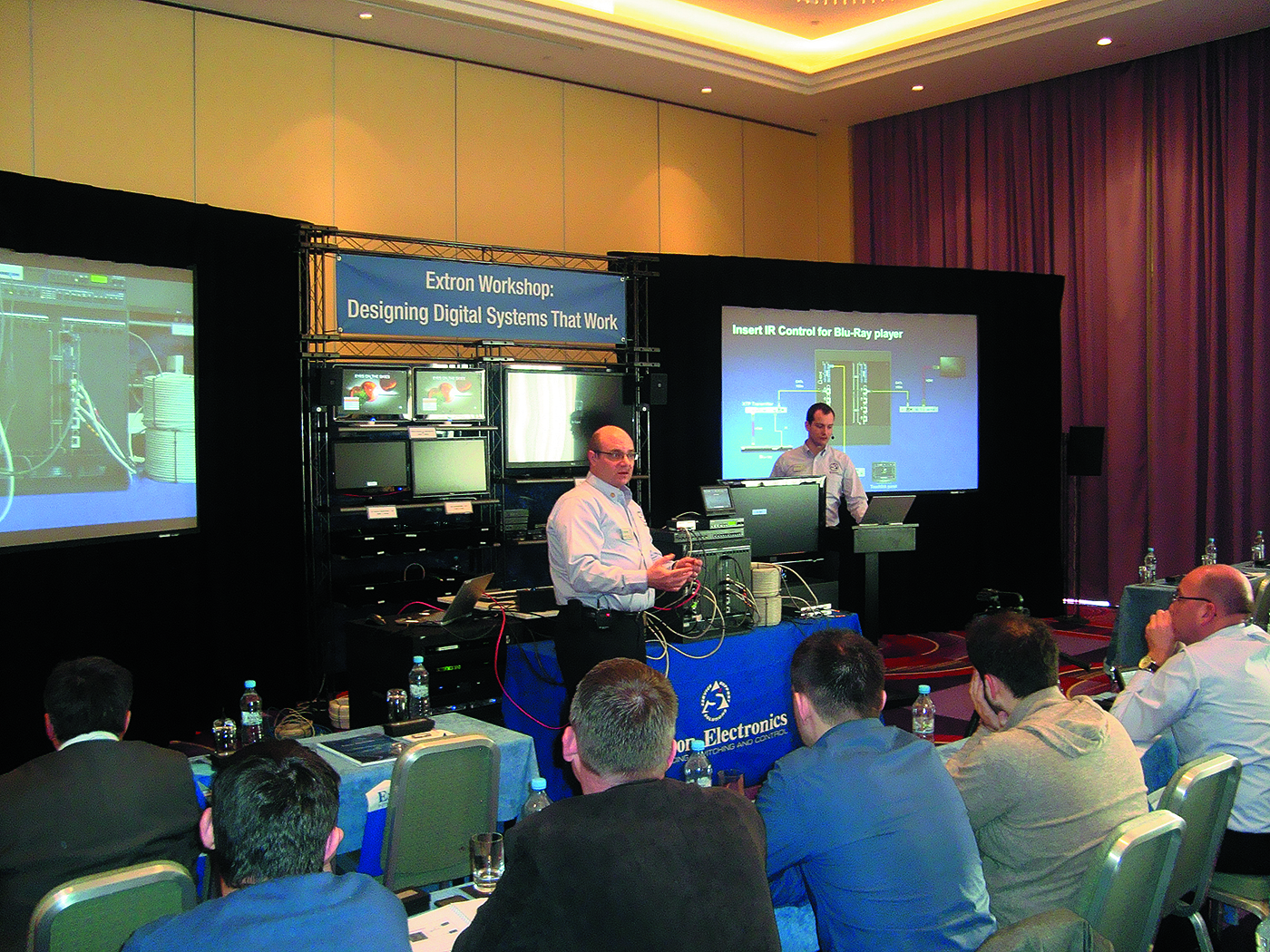
Previously we looked at how the main trade associations have changed their approaches to the provision of courses and qualifications for AV professionals. Here we ask the associations how new course content is selected.
Of course, keeping the content of training courses up to date with the latest technological changes is an important requirement.
Within CEDIA, says Simon Buddle, education director, there are “visionaries” tasked with tracking the tech trends through contacts within universities, Silicon Valley and elsewhere, and who feed this information into the association – and frequently present “top technology trends” sessions at industry expos.
“In simple terms, there’s a logical conveyor belt: topics like HDMI 2.0, UHD or 3D sound come in through our visionaries, then they hit the marketplace and we go out to subject matter experts to create and deliver that content. This year at ISE, our HDMI 2.0/HDCP 2.2 update classes were the best attended – along with the top tech trends.”
Bill Thomas, education programs director at InfoComm, describes a similar process within InfoComm: new course content is determined by a combination of top-down and bottom-up approaches, with topics chosen by experts from the organisation and demand from the membership.
While InfoComm also covers new technologies just as CEDIA does, Thomas has seen another change in course content: “We try to focus on the whole process now. For instance, it’s important that installers understand the big picture – such as what documentation is involved, and set-up and verification of complex AV systems – as well as the individual skills that are required. This requires installers to be much more thoughtful in their skill development.
“For example, previously they might not have worried too much about a big networking component in a project – someone else was going to do that; now, in many cases, it’s up to the installer to be the person who knows about that, knows how to make it work, and develops that skill within themselves and within their firms.”
Future paths
What do the organisations see for the longer term? For InfoComm, Thomas sees further progress along established paths. “I see more, smaller chunks of information, more just-in-time training.
“While onsite training will never go away, we’ll see a lot more video training, particularly in the developing world on mobile devices.
“And there will be much more localised content and a lot more regional education. We’ve already begun that, and it continues on.”
Buddle reports that CEDIA is aiming to get its courses “on the national education map” by getting them accredited by leading UK vocational education organisation City & Guilds. He explains: “Maybe in time to come we can take this out to colleges and start to build some courses around what one might call a smart home technician.” While this is “a very long road”, he says that the process has begun and “we hope to be able to report successes before the end of the year”.
He elaborates: “As the smart home market explodes, we’re going to need technicians who have a very broad skill set, with a knowledge of analogue audio, digital audio, networking, wireless security, heating controls, how those interact with the rest of the house, how LED lights work, how video is delivered, off air, over baseband in the home, and so on.”
To finish, both Thomas and Pam Taggart, director of international education at InfoComm, are optimistic about greater co-operation across the industry. “InfoComm is able to give a true global view,” say Thomas, “and the contributions of our international members are just astounding. Integrators here in the US have much to learn from their brothers and sisters in other parts of the globe.”
Taggart adds: “InfoComm has a vast knowledge base, and access to a lot of experts across the globe, but where we can co-operate with others, such as manufacturers, we can actually get that knowledge out. I think we’ll see a lot more of that going forward.”
The manufacturer’s view
Manufacturer-provided training is an important part of the picture in the installation industry, and perhaps the most prolific provider is Extron: the company offers 13 courses – including online training, certification courses, and instructor-led training – and has trained nearly 10,000 customers worldwide over the past year and a half.
“Education and training are the cornerstones of Extron’s commitment to our customers,” says Rainer Stiehl, vice president of marketing. “We strive to provide educational programmes that enable students to investigate, research, and participate in active learning. Our training is not a sales pitch: while we may use Extron technology to show attendees how to solve problems, our main focus is helping the industry gain new skills and get up to speed on developments in the industry. In contrast, our certification courses – including Extron Control Associate, Extron Control Specialist, XTP Systems Engineer and XTP Systems Technician – are focused on Extron products.”
Like InfoComm and CEDIA, Extron has also been working to extend the reach of its education efforts. “In the last four years, Extron has added 25 training and education centres around the world,” he says. “This has given us the opportunity to expand training, add more classes, and make it more accessible for our customers to attend a session.”
Looking five years ahead, Stiehl believes that saying on top of technology trends is vital to remain competitive.”As we have in the past, we will continue to stay abreast of these changes and update our curriculum accordingly. In addition, as we see applications become more complex, we anticipate the need for additional certifications.”
For more information on InfoComm training courses and qualifications







